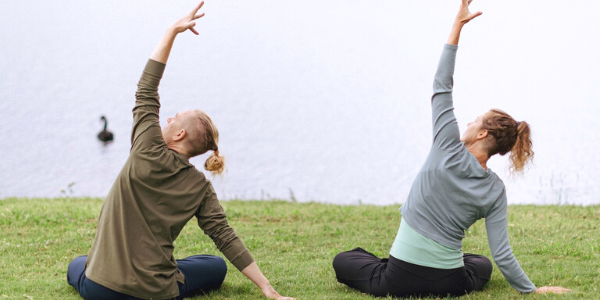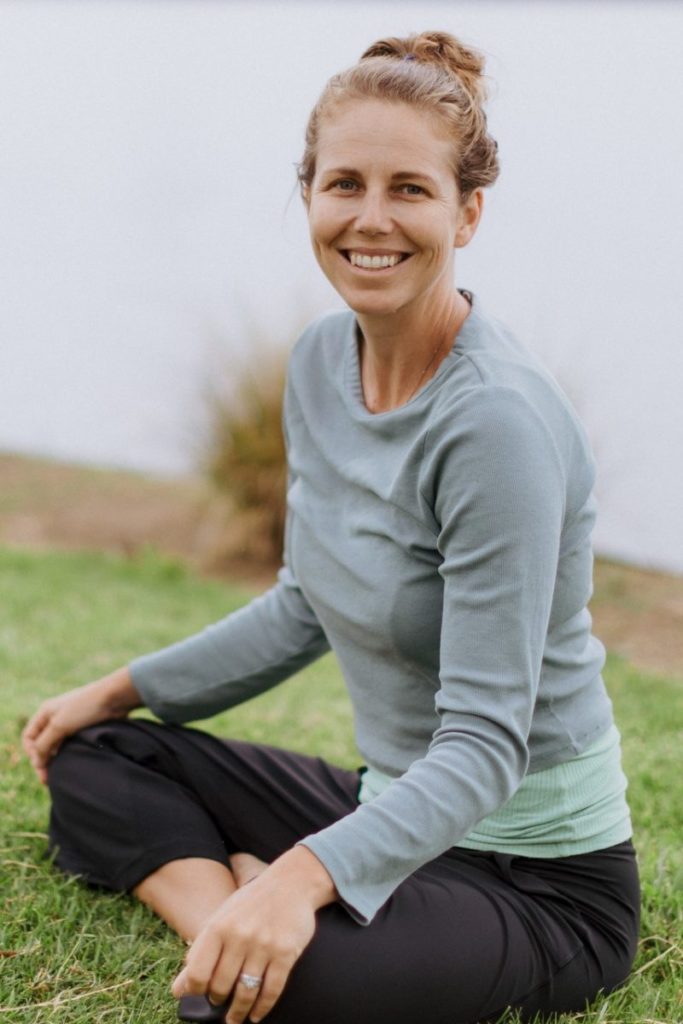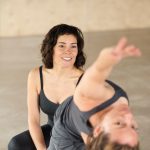
By Nicole Allan, lead trainer at Kawai Purapura Yoga School
A ‘Trauma Informed’ approach to yoga has been slowly making its way onto the yoga scene for a number of years now, offering invitation and choice at every opportunity.
For those who are not aware of this approach, it may seem nuanced, or something for a limited few who appear to struggle with managing their own lives. Yet, from my point of view, we could all benefit from a more trauma informed approach to living, and I believe Yoga is a great place to start.
Trauma Informed Yoga is a specific way of sharing the profound teachings that yoga has to offer, alongside a deeper understanding of trauma.
Why, you may ask?
Well… let’s start with the fact that for the past two years, globally, we have gone through a pretty traumatic time. We have been continually surprised and even scared with what might come next; there has been divide, there has been scarcity; we have experienced an inability to do what we love and see who we want when we want, even in times that in the past we would have been considered essential attendees such as family and support people.
When we consider for a moment a definition of what trauma is, using a broad and encompassing meaning, it is any time we have our choice taken away, while experiencing a level of fear in our body.
This could be as ‘minor’ as having your phone stolen… you wouldn’t choose to have this happen, and at some level there is an element of fear and restriction that manifests in your body if you perceive the event as negative. Fear will often create restriction in the body-mind, and this feeling of restriction can re-emphasize the feeling of choice being taken away.
Therefore, having choice is empowering and our ability to make our own choices (known as agency) is powerful. While it may seem simple, it is an essential part of feeling safe and in control of our lives.
We have experienced many instances in our lives when our agency has been taken away to some degree. This process over time can whittle away at our true sense of self, our knowing, our boundaries and even our intuition. This process can dramatically affect our sense of internal safety, which means the act of making empowered choices can become increasingly difficult.
Aligning our choices with our true values can be much more difficult in practice.
Many of us may relate to this common conflict of self-agency: we say ‘yes’ when we really mean ‘no’. Yet, we may not know why we can’t say ‘no’.
Traumatic events are often thought of as big, or long standing horrific abuse, yet in truth we have all experienced some type of trauma (often we may label this as stress, hard times etc.). Trauma really is something we all experience, to differing degrees, throughout much of our everyday lives.
Trauma stores in our body; trauma influences our belief structure; and trauma plays a huge role on how we see and interact in the world.
As we come to understand that we have all experienced trauma to some degree, we are able to open our hearts and eyes with greater compassion, not only for ourselves but for all those we share yoga with.
Because trauma involves taking someone’s choice away, in Trauma Informed Yoga we are teaching the body how to take choice back.
The main keys to Trauma Informed Yoga are:
- Doing our own work first from a place of love and humility.
- Offering choice in each asana/pranayama/meditation technique.
- Offering Invitation in each asana/pranayama/meditation technique
- Using specific language that encourages the student to cultivate more interoception, and agency, eventually allowing them to find a deep sense of safety in their body. Eg. ‘You may like to notice what there is to notice..’
- Creating a space for greater self enquiry through interoceptive awareness
- Holding an intention that no one is broken and all beings are sacred and worthy of
healing. - Understanding that everyone brings their own unique body and perspective to the
practice, and we as teachers are really here as guides to support the students’ self empowerment.
How is this different from other Yoga offerings?
- Some Yoga offerings move at a pace that doesn’t allow the necessary time for interoception.
- Some Yoga offerings have scripted delivery, reducing and potentially removing an instructor’s ability to adapt to the individual needs of the student.
- Some Yoga offerings have strict guidelines and rules that don’t allow for the choice and invitation required to assist in the healing of trauma.
- Some Yoga offerings can actually re-traumatise a student simply by taking away their choice.
I do believe every yoga offering has something truly profound to offer in its own way, yet it is important to understand that there is not one perfect yoga offering that will serve everyone.
I believe that through taking ownership of our own trauma history and making the courageous choice to start to heal and transform, we will see more positive change reflected back to us.
We truly can ‘be the change we wish to see in the world’ and taking a trauma informed approach can be a wonderful perspective to work from.

Nicole’s first real introduction to the complex nature of being human and what the spiritual path could offer came after her first 10 day silent Vipassana meditation. After travelling to India and learning more about yogic philosophy, Nicole then trained at The New Zealand School of Yoga under Mike and Sharon Byron-Mckay. The training was of B.K.S Iyengar style and was full time for a year. She qualified as a registered Yoga teacher with over 500 hours training + Introduction to Yoga Therapy.
Over the past 10 years training has never stopped, this includes: Reiki level 3, Yoga Nidra level 2, Acro Yoga Teacher Training, 200RYT Vinyasa Teacher training, Trauma Informed Yoga (TCTSY), Diploma of Counselling and Psychology, Online Trauma Training with Peter Levine, Online Somatic Trauma training with Albert Wong, among many others.
Nicole’s passion is cultivating Radical Awareness, through the tools of self reflection. She believes the process of getting to know ourselves is the journey to freedom and that this happens in the most loving and empowering way through a Trauma Informed Perspective.
Nicole is a lead trainer at the Kawai Purapura Yoga School. Read more about their offerings, including their upcoming 150 hour Yoga and Trauma Advanced training in the Yoga Lunchbox Teacher Training Guide here.
Similar Articles You May Enjoy
- Amy Ippoliti on Why 60-Minute Yoga Classes Might Be Watering Down Yoga
by Lucinda Staniland Meet Amy Ippoliti—yoga teacher, author, earth activist and founder of 90 Monkeys, an online professional development school for yoga teachers. One of the first things I noticed when I watched this video interview with Amy was her irrepressible enthusiasm for the practice of yoga. Yes, there's no…
- Why Yogis Need The Deep Lessons of Karma Yoga
by Ram Davies, Sivananda Yoga Centre I was lying in bed in an apartment in South Beach, Florida, reading Meditations and Mantras by Swami Vishnudevananda, when it dawned on me: I don’t enjoy where I am and what I’m doing. Straight away I put the book down and emailed a…
- Teaching Yoga? You Must have a Home Yoga Practice. Here's why
by Kara-Leah Grant Recently on social media, a yoga teacher was talking about the difficulty of fitting in going to yoga classes with her busy schedule, and admitted that her home yoga practice was poor. This teacher displayed zero awareness of the importance of a personal practice for anyone who teaches…


Leave a Reply